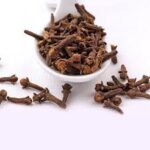What is Sage?
Sage (Salvia officinalis) is a fragrant, perennial herb native to the Mediterranean region. Known for its earthy aroma and slightly peppery flavor, sage has long been revered in traditional medicine and culinary use. It’s packed with antioxidants and beneficial compounds that support the brain, digestion, and immune system.
Health Benefits of Sage
-
Cognitive Support: Improves memory, mental clarity, and may help prevent cognitive decline.
-
Anti-Inflammatory: Reduces inflammation in the body and may help with conditions like arthritis.
-
Digestive Health: Soothes indigestion, bloating, and upset stomach.
-
Immune Booster: Contains antimicrobial and antioxidant properties to help fight infections.
-
Hormonal Balance: May reduce hot flashes and mood swings related to menopause.
-
Oral Health: Acts as a natural mouthwash to soothe sore throats and gum inflammation.
-
Blood Sugar Support: Helps regulate blood sugar levels when used regularly.
How to Make Sage Tea
Ingredients:
-
1 teaspoon dried sage leaves or 2–3 fresh leaves
-
1 cup boiling water
-
(Optional) lemon and honey for added flavor
Instructions:
-
Place sage leaves in a cup or teapot.
-
Pour boiling water over the leaves.
-
Cover and steep for 5–10 minutes.
-
Strain and enjoy warm.
-
Drink 1–2 cups daily for best results.
Tip: Sage tea is especially soothing for sore throats or after heavy meals.
Precautions
Sage is safe in moderate amounts but should not be consumed in large quantities for extended periods due to thujone, a compound that can be toxic in high doses. Avoid during pregnancy or while breastfeeding unless advised by a healthcare provider
Sage
Salvia officinalis
Herbal Tea
Cognitive Support
Digestive Aid
Immune Booster
Hormonal Balance
Natural Remedies
Antioxidant Herbs
Menopause Support












